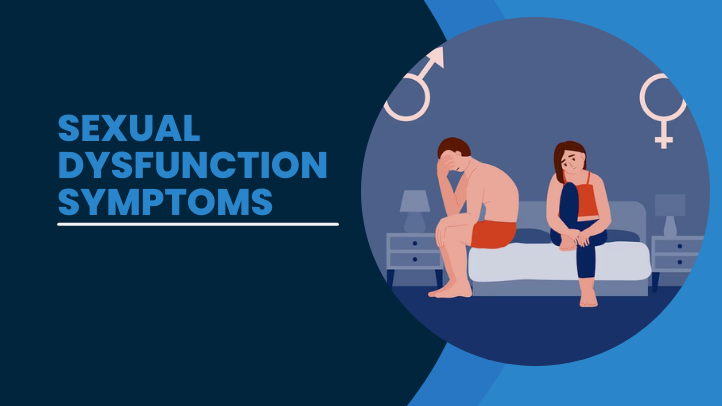
Sexual Dysfunction Symptoms – Sexual Dysfunction is a concern that refers to the inability to get involved in sexual activities either due to stress, elevated alcohol consumption, or any physical trauma. This disorder is often seen after the age of 40 and it can be cured by following proper medications.
Earlier, it has been an underlying topic in India, as people felt that disclosing these problems might affect their dignity and self-respect. However, with time, the growing awareness of sexual problems and their treatments has changed the perspectives. Currently, the prevalence of Sexual Dysfunction Symptoms in India varies from 22% to 75%.
Not only physical but emotional, self-esteem and interpersonal side also get badly affected due to Sexual Dysfunction Symptoms. It can further lead to frustration and feelings of inadequacy. Thus, finding a cure at the right is highly recommended.
You can visit Ahuja Clinic, the Best Gynecology Clinic in Chandigarh where Dr. Ruchi Rai Ahuja holding expertise of more than 15 years will guide you through effective ways to tackle Sexual disorders. After making a complete diagnosis, and knowing about your sexual history, she will give you the best treatment possible to get rid of Sexual Dysfunction Symptoms.
Sexual Dysfunction can be diagnosed through a physical examination from a trusted gynecologist like Dr. Ruchi Rai Ahuja. If you’re experiencing any below-mentioned sexual dysfunction symptoms, visit us to seek expert medical advice.
Once you’ve been diagnosed with sexual dysfunction, we will work on a valid treatment to give you a cure that can normalize your sexual life.
The potential symptoms in both genders are different and knowing about them makes it easy for the doctor to directly target the problem and provide reliable care to rectify the dysfunction.
The associated Sexual Dysfunction Symptoms in males are as follows:
The following problems can affect women’s sexual life. Seeking help from a healthcare provider can often provide solutions and improve sexual well-being.
The ones witnessing any of the symptoms should make an immediate visit to the gynecologist to safeguard themselves from disrupting their physical and mental peace.
Studies have shown that Sexual Dysfunction symptoms can be seen in the younger generation, but most often, it is more noticed in people over 40 years. Extreme stress, any kind of sickness involving a high dosage of medications, emotional issues, or any past trauma related to sexual life can be the reasons triggering Sexual Dysfunction Symptoms.
Some of the compiled causes behind this concern involve:
Physical causes
Many physical factors can potentially affect the medical condition which can anyhow link to sexual disruptions and/or underlying medical conditions that can affect sexual function. Some of these conditions include
Psychological and social causes
Long-term stress and sexual abuse can also contribute to Sexual Dysfunction. Mental pressure about getting pregnant can also have similar effects. Like this, there are some more reasons:
Hormonal changes
Dr. Ahuja Clinic, the leading Gynecology Clinic in Tricity (Chandigarh, Mohali, Panchkula) provides top-notch facilities regarding the issues of your unsatisfied sexual life and other intimate issues.
At Ahuja Clinic in Chandigarh, you will get a friendly environment where you will feel completely comfortable sharing all your problems with us. We keep full confidentiality of all patient’s records, so you can openly talk about all of your concerns.
Our main aim is to alleviate the symptoms of Sexual Dysfunction by the supreme medications carrying 100% safety and efficiency. Dr. Ruchi Rai Ahuja is here at your service and will diagnose the root cause and then proceed further with the required procedure to eliminate this problem from your life.
We have curated a precautionary list for the ones dealing with Sexual Dysfunction
These adaptations followed by our advice can bring your sexual life on track. So, do not waste more time, and schedule a meeting with us now.
Address: #109 Sector-18 A, Chandigarh PIN 160018 (near Rotary Club)
Mobile Number: +91-6284862829
Email: alokahujaruchirai@gmail.com
Copyright © 2025 Dr Ahuja Clinic. All Rights Reserved | Marketing by : WebHopers
Website Design by CSW Technologies